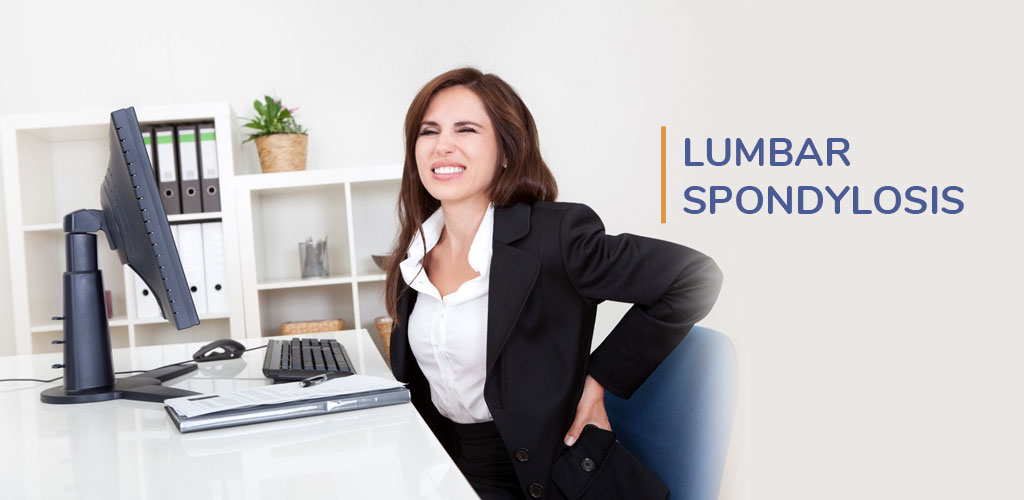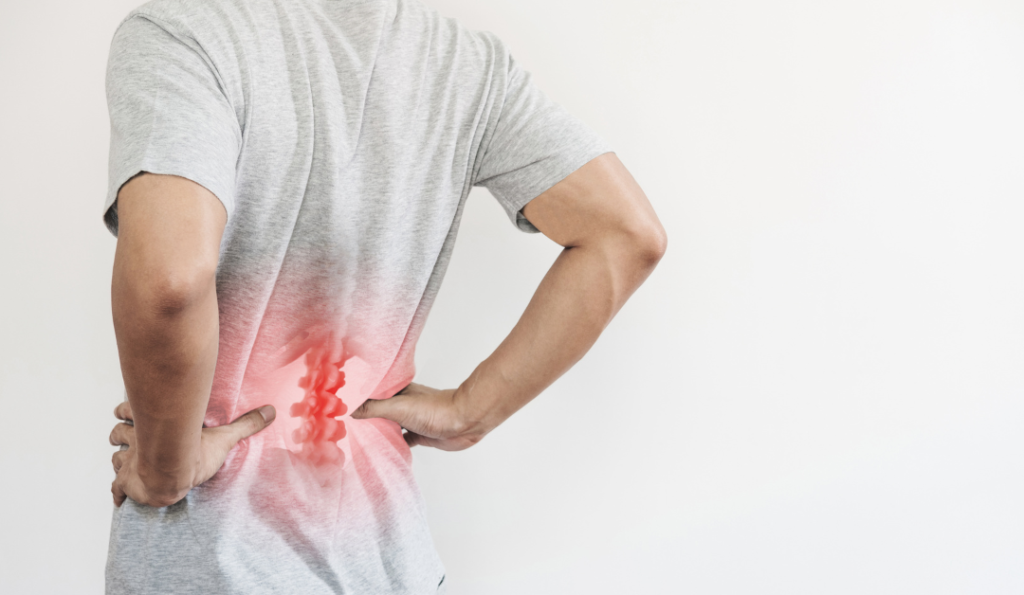Menu
TALK TO AN EXPERT
+91 9236407378
+91 9236407378
Lumbar spondylosis is a degenerative condition affecting the lower spine (lumbar region), leading to the wear and tear of the intervertebral discs and vertebrae. This condition is a common cause of lower back pain, particularly in older adults. As the spine ages, the discs lose water content, become less flexible, and the vertebrae may develop bone spurs (osteophytes), all of which contribute to lumbar spondylosis.
The natural aging process causes the intervertebral discs to lose water content, making them thinner and less effective as shock absorbers. This leads to increased stress on the vertebrae and the development of osteophytes.
A family history of spondylosis or other spinal disorders can increase the risk of developing lumbar spondylosis.
Jobs or activities that involve repetitive bending, lifting, or twisting can put extra strain on the lower back, accelerating the wear and tear process.
Past injuries to the spine, such as fractures or herniated discs, can contribute to the development of spondylosis.
Excess body weight increases the load on the spine, leading to faster degeneration of the discs and joints.



Symptoms of lumbar spondylosis can vary depending on the severity of the condition and whether nerve roots are compressed. Common symptoms include:
Regular Exercise:
Maintain a Healthy Weight:
Practice Good Posture:
Avoid Repetitive Strain:
Ergonomic Workspaces:
Healthy Diet:
If you experience persistent or worsening lower back pain, numbness, tingling, or weakness in the legs, it’s important to seek medical advice. Early intervention can help manage symptoms and prevent complications. Additionally, exploring homeopathic options with providers like Won Homeopathy can offer holistic support in managing lumbar spondylosis.
Won Homeopathy: Provides individualized homeopathic treatments aimed at relieving pain, reducing inflammation, and supporting overall spinal health. These remedies focus on addressing the root cause of lumbar spondylosis and promoting natural healing.